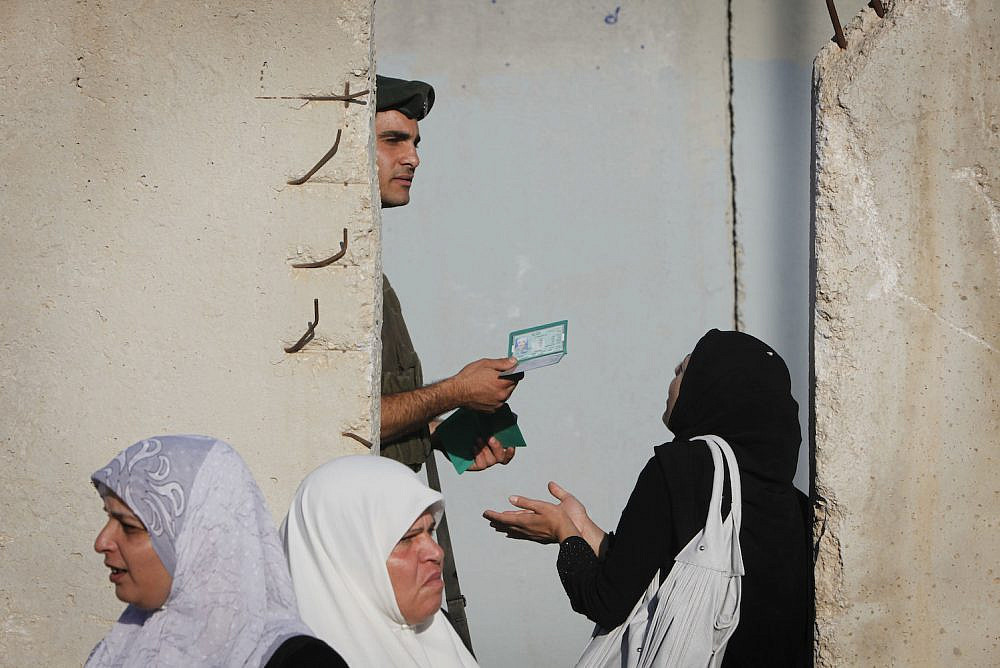This article originally appeared in “The Landline,” +972’s weekly newsletter. Subscribe here.
In a late-night vote on Thursday, the Knesset decided to make one of Israel’s most racist laws even more racist. After months of political wrangling, the parliament passed a new version of the Citizenship and Entry into Israel Law, which bans Palestinians in the occupied territories and citizens from “enemy states” from uniting with spouses and families who are citizens of Israel. Renewed for nearly two decades, this “temporary order” has been a defining feature of Israeli rule over Palestinians on both sides of the Green Line, directly targeting their right to love, marry, and raise children.
The story of the Citizenship Law is very much a story of Israel’s growing confidence in asserting its racist ambitions. When it was first enacted in 2003, many Israeli officials took pains to defend the law as either a “normal” immigration policy or a “security measure” amidst the Second Intifada. Both were dubious arguments from the very beginning: the Law of Return allows only one ethno-religious group the right to immigrate and receive Israeli citizenship; the state’s own data shows the security fears around family unification were vastly overblown; and thousands of Palestinian workers are permitted to enter Israel every day, so long as they return to the occupied territories.
Over the years, however, the Israeli establishment has grown unapologetic about the law’s real purpose: demographic engineering. The new version now explicitly notes that its aim is to restrict the status of people from “hostile countries or from the region,” emphasizing Israel’s identity and interests as a “Jewish and democratic state.” In short, the number of “non-Jewish” citizens — native Palestinians — must be actively minimized by any means necessary.
This open embrace of the law’s true nature has spread across the Israeli political spectrum, and any subtle language has since been abandoned. Renewing the order in 2005, then-Prime Minister Ariel Sharon declared “There’s no need to hide behind security arguments. There is a need for the existence of a Jewish state.” Israel’s top judges fell in line: in his 2012 ruling upholding the ban, Supreme Court President Asher Grunis opined “Human rights are not a prescription for national suicide.”
Last July, the “centrist” architect of the post-Netanyahu coalition, Foreign Minister Yair Lapid, stated “There’s no need to shirk from the essence of this law. It is one of the tools to ensure a Jewish majority in Israel.” The right-wing Interior Minister Ayelet Shaked, who is currently in charge of overseeing family unification applications, also made clear last month, “We don’t need to mince words, the law also has demographic reasons.”
The international community has long taken it as an article of faith that Israel will forever be a “Jewish state.” What it didn’t ask — or didn’t question — was what it would take to fulfill that vision. The answer lies in this horrific law, one of many that invade and dispossess the most intimate spaces of Palestinian life in order to preserve the supremacy of one group over another.
Shaked herself could not have put it more bluntly, posting on Twitter shortly after the Knesset vote: “A Jewish and democratic state – 1. A state of all its citizens – 0.” How many more Israeli officials need to be blatant about their intentions, and how many more racist laws need to be passed, before the world accepts that Israel wants to be an apartheid state?


